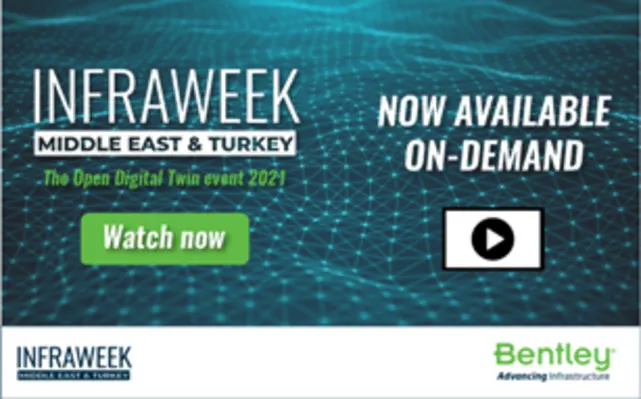Thought leaders and experts from the energy sector who attended the recently concluded Bentley Infraweek for the Middle East and Turkey agreed that digital twins bring significant value to their organisations, changing the way that they operate
The event was sponsored by Bentley Systems, the infrastructure engineering software company, to share emerging technologies, products, and solutions, as well as provide an opportunity for exchange of knowledge about digital transformation and innovation.
Bentley’s Infraweek brought together large end-users, utility companies, owner-operators, national oil companies, energy institutes and associations, and integration solution providers to share insights and expertise on the use of digital twins to ensure safer, more reliable, and efficient operations. Their in-depth discussions highlighted the roles of digitalisation in business transformation and sustainability, as well as the challenges and development of the region’s infrastructure.
The experts defined digital twins and explored how this solution has been improving asset operators’ situational awareness, as well as optimising their assets’ performance. For oil and gas companies, digital twins have been found to enhance their efficiency. Digital twin provides new ways to oversee and analyse assets, increase productivity, promote collaboration, and accelerate project delivery.
Further, they identified asset performance improvement, operational efficiency, and safety as key business drivers in the integration of digital twin solutions. Of all the attendees, 47% of them agreed that digital twins have added value and key advantages to their organisations.
Frederik Verhoef, Global Advancement Director, Asset and Network Performance at Bentley Systems, said, “Aside from asset performance improvement, operational efficiency, and safety, digital twin solutions also help with data monitoring, analysing, and predicting. Digital twin technology is a competitive advantage, and we hope that other stakeholders also learn more about its value.”
Following these discussions, the group concluded that digital twin solutions also enhance data handling and communication, which are essential in the successful execution of early phase field development projects. Verified and shared data across departments facilitates collaborations and easy access, which ensures that the project will be delivered within budgeted cost, time, and quality.
The event also threw light on the Middle East oil and gas industries, particularly on analytics and growth forecast from 2021 to 2026. Factors attributed to this growth are the increasing cloud adoption in the region, best industry practices for younger workforce, and deployment of digital twin solutions.
Discussions on the top business trends in 2021 further amplified the importance of building strategic partnerships for efficient enterprise management, the use of sustainable energy sources, and ways to effectively help customers respond to climate change, new energy sources, a circular economy, and digitalisation.
Christian Huber, Vice President, Regional Executive, EMEA at Bentley Systems, noted, “As various industries and sectors strive to achieve net-zero emissions, collaboration is needed, and this is one of the applications of digital twin solutions. It creates collaborations, drives innovation, and helps achieve optimal performance. We are pleased to gather leaders and experts in this event to network with each other, as well as to come up with more innovative solutions for the challenges faced by the oil and gas sector.”
Aside from Verhoef and Huber, the list of speakers included Mehreen Javaid, Principal Software Engineer, Bentley Systems; Klaus Hatle, Principal Consultant, Energy, Bentley Systems; Denis Marshment, Vice President, Digital Twins, Worley; Wassim Ghadban, Vice President, Global Innovation, Kent; and Andreas Gaarder, Vice President, EMEA, FutureOn.
Infraweek successfully covered various sessions, a live demo of the digital twin solution, and concluded with an interactive panel discussion that was followed by a question-and-answer session for participants.






